Woman with Celiac Snaps at Friend Over Kiwi “Joke” After Gluten-Free BBQ Drama
A 30-year-old woman with celiac disease shared her frustration on Reddit after months of passive-aggressive behavior from her friend Todd, 32, who is allergic to kiwis. The tension began at a housewarming barbecue where Todd proudly prepared gluten-free chicken for her. However, when questioned about the ingredients—specifically Worcestershire sauce, which can contain hidden gluten—Todd rolled his eyes and grew defensive. Though she politely declined the dish to protect her health, Todd later accused her of publicly embarrassing him.
Since then, Todd has made a point of mocking her dietary restrictions in social settings, sarcastically refusing food she brings with exaggerated kiwi-related comments. This culminated in a confrontation when she snapped and called out his hypocrisy, noting that she takes extra care to avoid allergens, unlike him. While some bystanders felt she overreacted, others understood her frustration after enduring months of subtle jabs and dismissive behavior.
Celiac Disease is a serious condition and really needs to be taken seriously

So one woman was very frustrated when her so-called friend got annoyed that she realized the dish he cooked wasn’t gluten free
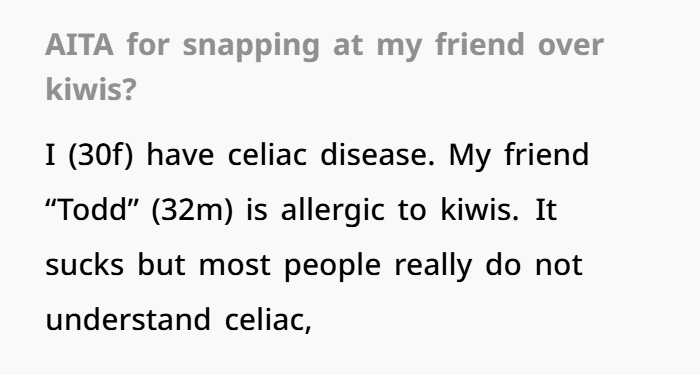
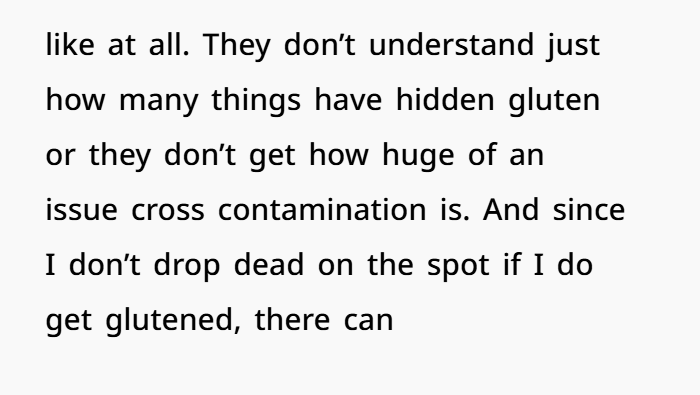
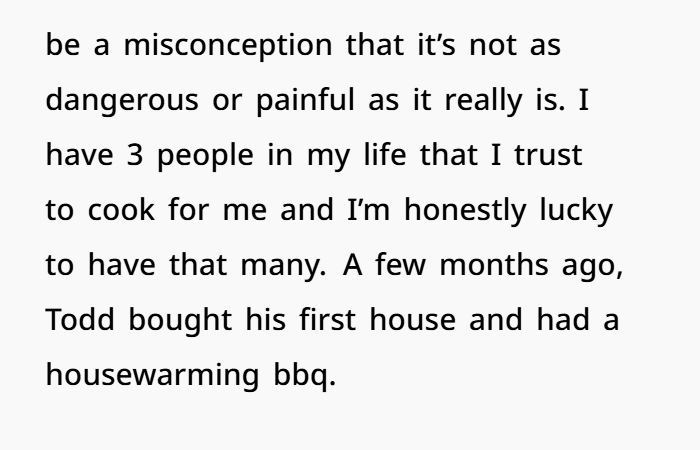
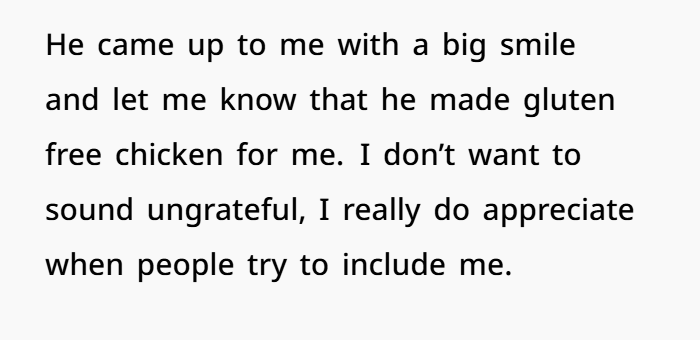
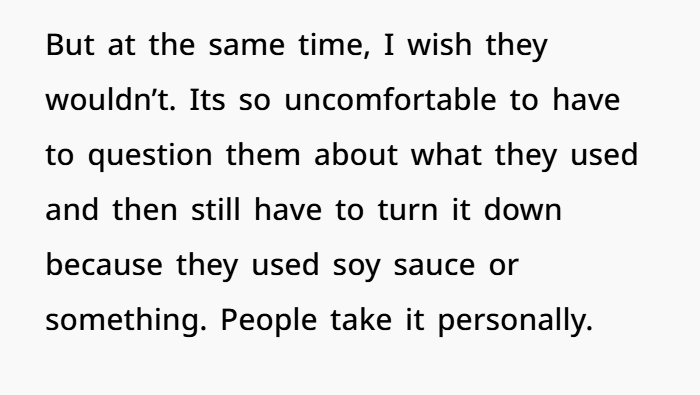
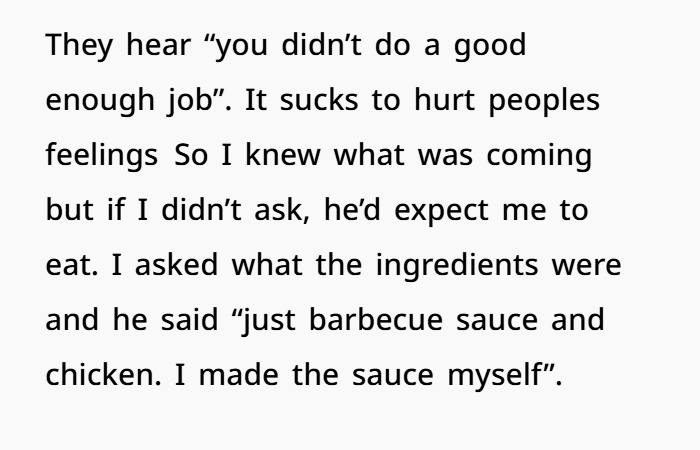
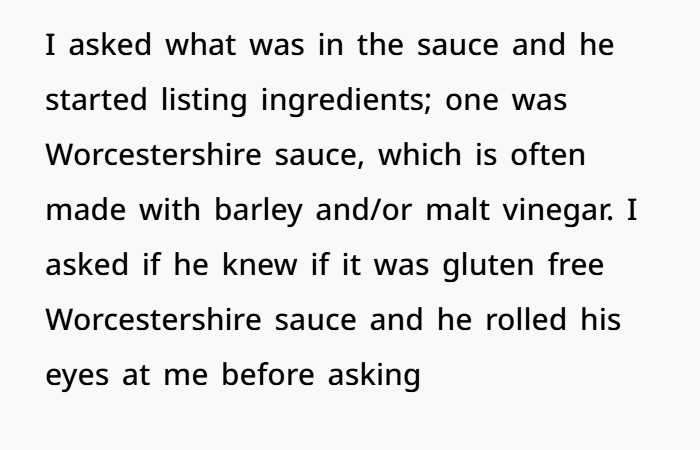
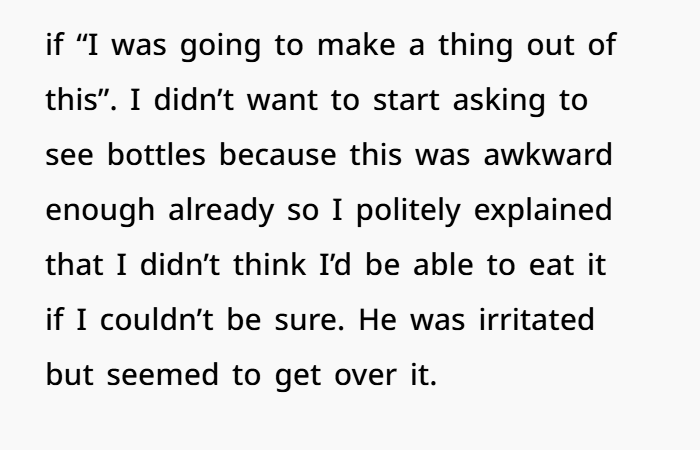
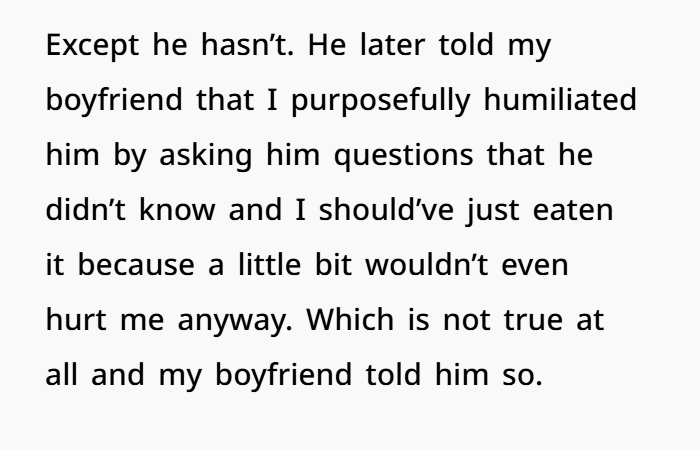
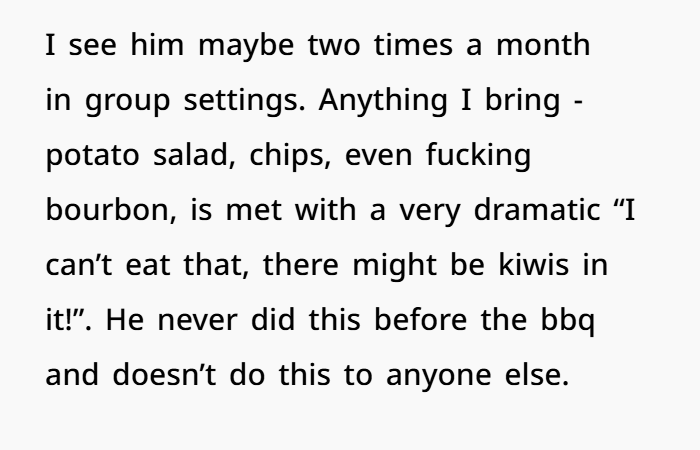
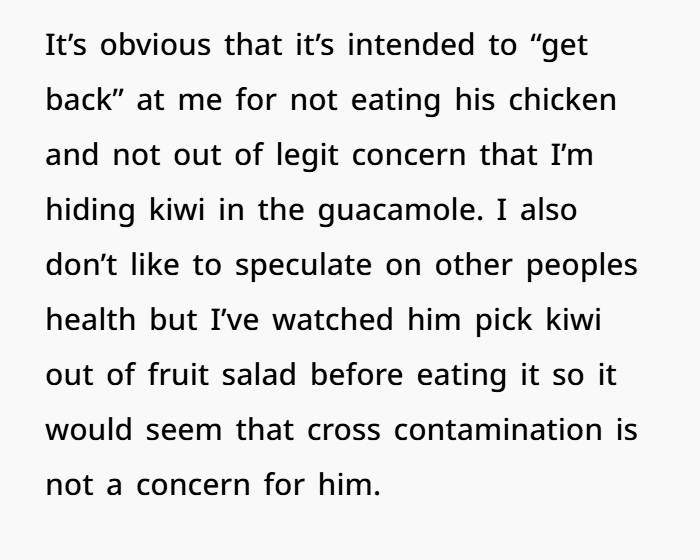
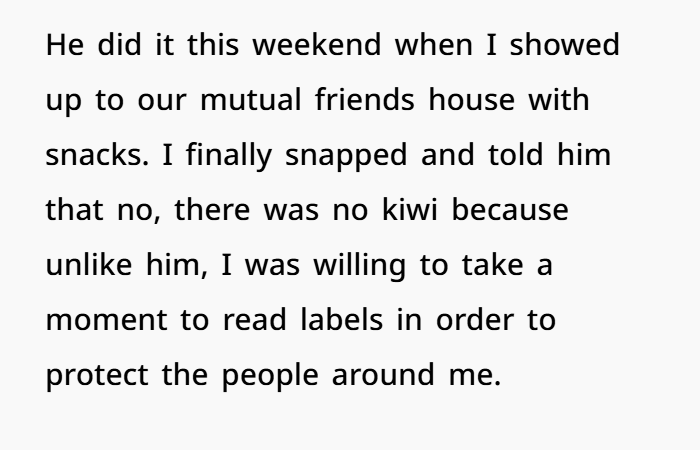
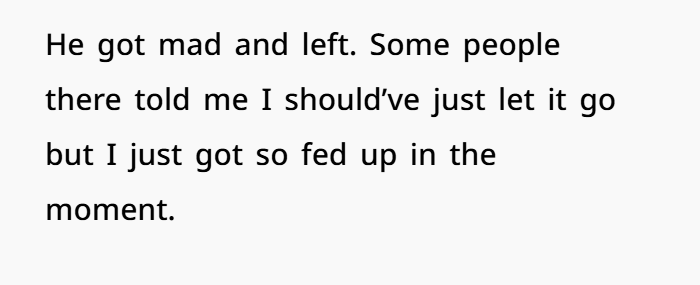
AITA for Snapping at My Friend Over Kiwis?
Navigating social situations with dietary restrictions can be challenging, especially when others don’t fully grasp the seriousness of certain conditions. In this scenario, a woman with celiac disease faced ongoing mockery from a friend after declining his homemade dish due to potential gluten contamination. Let’s delve into the details and assess the dynamics at play.
Understanding Celiac Disease and Its Implications
Celiac disease is an autoimmune disorder where the ingestion of gluten—a protein found in wheat, barley, and rye—triggers an immune response that damages the small intestine’s lining. This damage can lead to malabsorption of nutrients and a host of symptoms, including digestive issues, fatigue, and skin rashes. Importantly, even trace amounts of gluten can cause significant harm to individuals with celiac disease. Cross-contamination, where gluten-free foods come into contact with gluten-containing substances, is a major concern. For instance, using the same cutting board or toaster for both gluten-containing and gluten-free items can introduce enough gluten to cause a reaction Beyond Celiac.
The Incident: A Breakdown in Communication and Understanding
At a housewarming barbecue, the friend, Todd, prepared chicken with a homemade barbecue sauce, intending it to be gluten-free. However, upon inquiry, it was revealed that the sauce contained Worcestershire sauce—a condiment that often includes malt vinegar derived from barley, making it unsuitable for those with celiac disease Beyond Celiac. When questioned about the ingredients, Todd became defensive, perceiving the inquiry as a personal affront rather than a necessary precaution.
Subsequently, Todd began making sarcastic remarks about potential kiwi content in dishes brought by the woman, despite his own allergy to kiwis being less severe and not involving cross-contamination concerns. This behavior persisted over time, culminating in the woman confronting Todd about his mockery, leading to his departure from the gathering.
Assessing the Reactions: Was the Response Justified?
The woman’s decision to question the ingredients in the dish was a responsible act to safeguard her health. Given the complexities of identifying hidden gluten sources and the serious consequences of accidental ingestion, vigilance is essential for those with celiac disease.

Todd’s reaction, characterized by sarcasm and mockery, indicates a lack of understanding and empathy. His comparison of his kiwi allergy to celiac disease is flawed, as the management and risks associated with each differ significantly. While his feelings of embarrassment over the initial incident are understandable, his prolonged passive-aggressive behavior was inappropriate.
The woman’s eventual confrontation, though direct, was a response to ongoing provocation. While some may view her reaction as harsh, it was a culmination of repeated disrespect and a defense of her legitimate health concerns.
Most folks thought she didn’t overreact
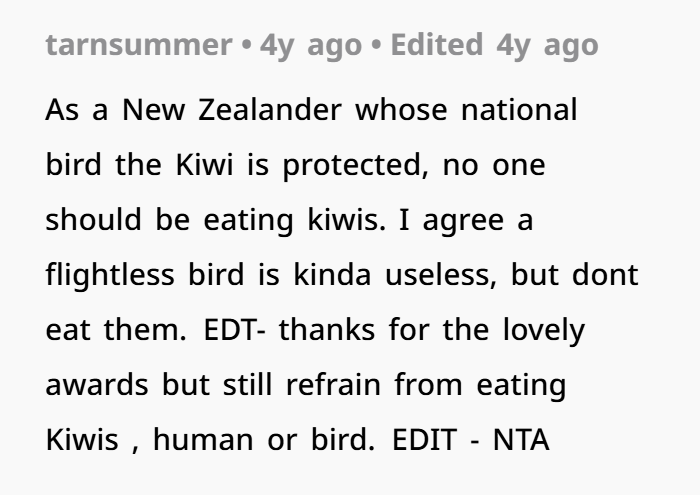
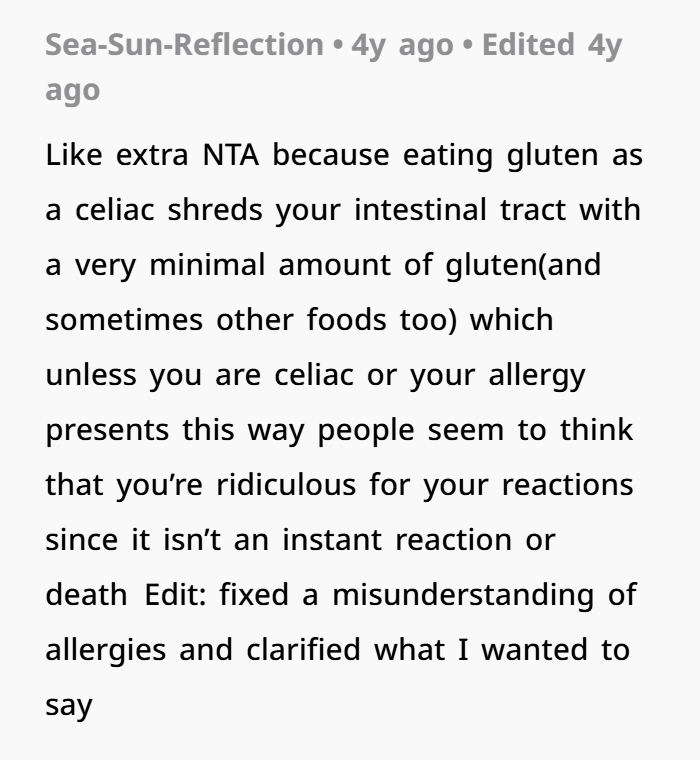
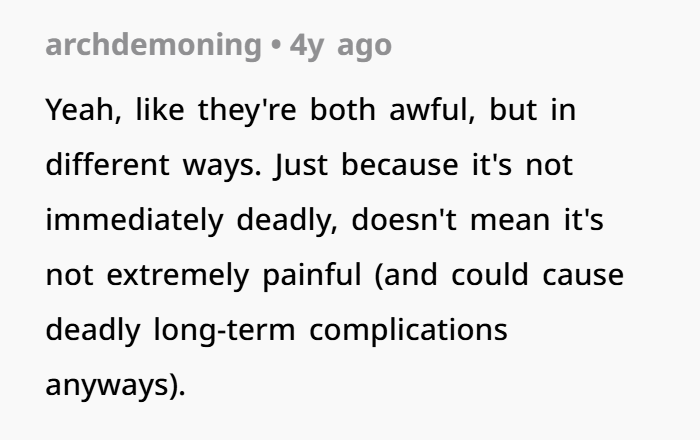
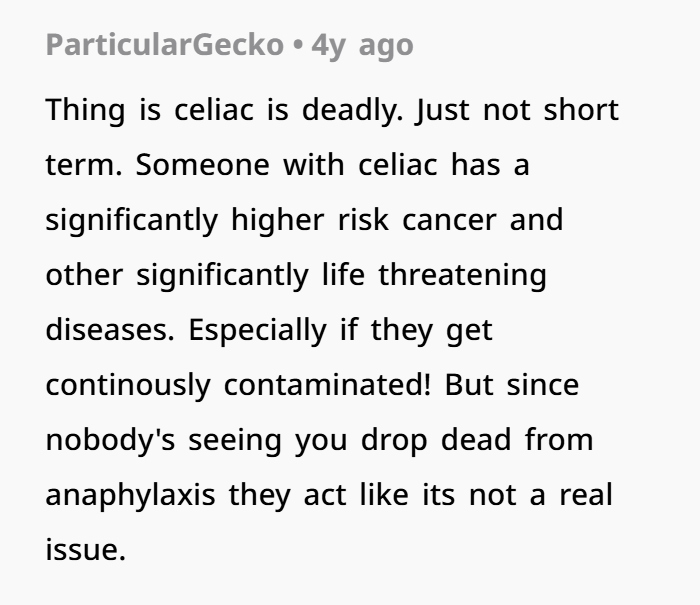
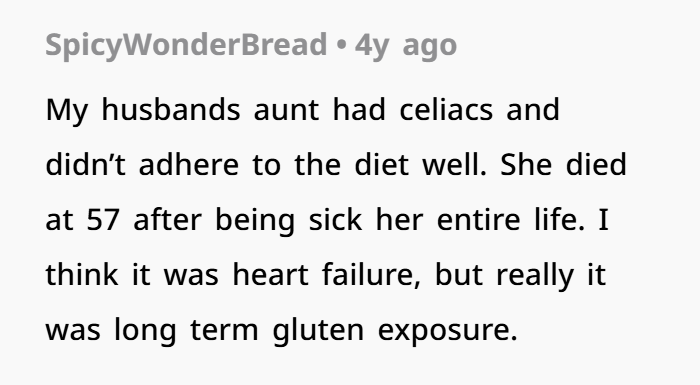
Navigating Dietary Restrictions with Empathy
In social settings, it’s crucial to approach dietary restrictions with empathy and understanding. For individuals with conditions like celiac disease, strict adherence to dietary guidelines is not a choice but a medical necessity. Open communication, respect for boundaries, and a willingness to learn can foster inclusive environments where everyone feels safe and valued.
In this case, the woman’s actions were rooted in self-protection and a desire for respect, making her response understandable given the circumstances.

